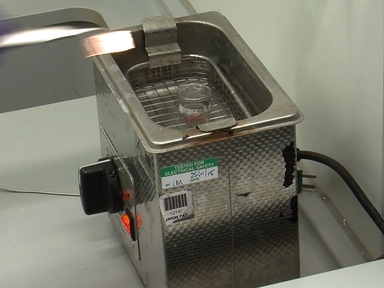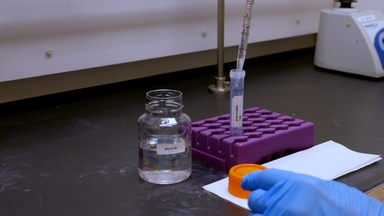Immobilization of Multi-biocatalysts in Alginate Beads for Cofactor Regeneration and Improved Reusability
April 22nd, 2016
•Presented is the protocol for co-immobilizing whole-cell biocatalysts for cofactor regeneration and improved reusability, using the production of L-xylulose as an example. The cofactor regeneration is achieved by coupling two Escherichia coli strains expressing functionally complementary enzymes; the whole-cell biocatalyst immobilization is achieved by cell encapsulation in calcium alginate beads.
Related Videos

Improved In-gel Reductive β-Elimination for Comprehensive O-linked and Sulfo-glycomics by Mass Spectrometry

Microbubble Fabrication of Concave-porosity PDMS Beads

Improved Heterojunction Quality in Cu2O-based Solar Cells Through the Optimization of Atmospheric Pressure Spatial Atomic Layer Deposited
Zn1-xMgxO

Synthesis of Protein Bioconjugates via Cysteine-maleimide Chemistry

Surface Functionalization of Metal-Organic Frameworks for Improved Moisture Resistance

Bio-inspired Polydopamine Surface Modification of Nanodiamonds and Its Reduction of Silver Nanoparticles

Preparation of Poly(pentafluorophenyl acrylate) Functionalized SiO2 Beads for Protein Purification

An Improved Technique for Trimethylamine Detection in Animal-Derived Medicine by Headspace Gas Chromatography-Tandem Quadrupole Mass Spectrometry

Porphyrin-Modified Beads for Use as Compensation Controls in Flow Cytometry

Combining Amine-Functionalized Polystyrene Beads with TCPP Solution
ABOUT JoVE
Copyright © 2024 MyJoVE Corporation. All rights reserved